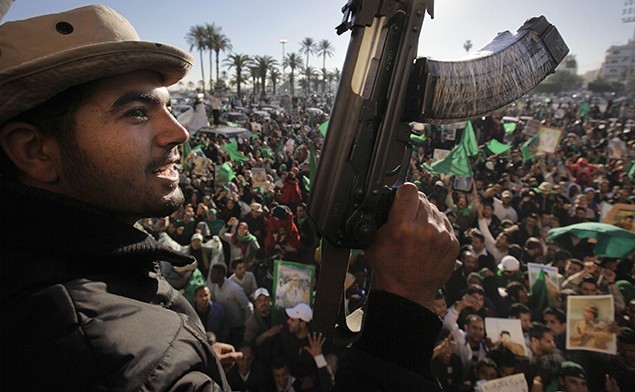
Oil giant BP has pulled some foreign workers out of Libya after warnings about deteriorating security in the north African country.
It said some non-essential staff had been withdrawn following advice from the UK Government over safety in Tripoli, the Libyan capital.
A BP spokesman said: “Following Foreign and Commonwealth Office advice given to us by the British embassy in Tripoli, and purely as a precautionary measure, we have brought non-essential overseas staff out of Libya for the time being in a phased reduction of numbers.
“Our Libyan staff remain and the office continues to operate.”
BP’s move follows a decision by the British embassy in Libya last week to reduce its staff because of growing unrest in Tripoli.
Two weeks ago, armed groups seized two Libyan government ministries to press their demands on parliament.
The sieges ended peacefully over the weekend, but the incidents have heightened fears that clashes could again break out in Tripoli.
The BP spokesman said fewer than a dozen of the company’s workers would be leaving Libya. It is not known if any British workers are involved.
The spokesman added: “We will continue to monitor the security situation and move people back in to Libya when it is considered safe to do so.”
Libya’s new rulers have struggled to impose their authority following the fall of the Muammar Gaddafi regime two years ago and many parts of the country remain out of government control.
BP’s decision to withdraw some workers also follows a siege at a gas plant operated by the company in neighbouring Algeria earlier this year.
Militants killed 37 foreign workers at the In Amenas facility in January, including two with Scottish connections.
Alan Wright, 37, from Portsoy, was among a group of about 30 workers who fled into the Sahara as gunfire rang out behind them.
Just days after the Algeria incident, BP said it was reconsidering plans to drill for oil in Libya because of security fears.
Recommended for you
